BELARUSIAN ENTROPY: AS IRREVERSIBLE AS IT IS HARD TO PUT THE TOOTHPASTE BACK INTO A TUBE
12/11/2020
1: thermodynamics : a measure of the unavailable energy in a closed thermodynamic system that is also usually considered to be a measure of the system’s disorder, that is a property of the system’s state, and that varies directly with any reversible change in heat in the system and inversely with the temperature of the system
broadly : the degree of disorder or uncertainty in a system
3: CHAOS, DISORGANIZATION, RANDOMNESS1
(Entropy | Definition of Entropy by Merriam-Webster Dictionary)
“But everything is in order in Belorussia!”2
“Minsk is a clean city!”
“Cleanliness and order is the number one question!”
“We, of course, try to maintain the image of our country. As you say – cleanliness, neatness, quietness and so on.”
“What are you tired of in Belarus? Order and cleanliness in your country?”3
Yes! – because even according to the Second law of thermodynamics, in an isolated system entropy does not decrease, and any closed system tends to disorder.
Yes! – because Belarusian cleanliness strives for sterility, and sterility is infertility and the absence of microorganisms.
Yes! – because the Belarusian order and “stability” are based on conservation. And conservation is preservation from damage, decay, destruction, suspension of development, and not restoration, maintenance of life, or renewal.
***
In 2020, an isolated and closed Belarusian political system, based upon a regime lasting a quarter of a century, seriously crushed, violating its own order and notorious stability. First of all, this was manifested by the government policy amid the COVID-19 pandemic. Denial of a real threat, comparing the situation with “psychosis”, cynical jokes and statements about prevention and treatment, refusal to introduce quarantine measures, downplaying the problem and false statistics, insults and accusations against the sick and the dead – all these bugs made a mess in the system. And even the most ordered “particles” realized that the system no longer ensures their healthy existence, does not preserve life even at the level of conservation. And the entropy began to rise. t was manifested by the regime in pejorative and low-grade criticism, pressure on candidates and political repressions, outright falsification of elections, violence by the riot police during the suppression of protests, various mass punishments for dissent and for the manifestation of civil position, all accompanied by breaking of the law, constant perjury, and violation of human rights – which in its entirety could be already considered as the genocide of the own people. In turn, the dissenting, protesting society also increased the degree of chaos and instability of the system, rocking the regime further and further, more actively, and on a larger scale. If in May-July the actions of activists and volunteers involved in election campaigns were rather orderly – collecting signatures or numerous complaints about election violations, attempting to become independent observers – then from August 9th, a Brownian movement began, actively changing forms, methods, and directions of protest, in which thousands of particles participate and, thus, set in motion the larger segments.
***
And of this fact (as I record it here)
An image, a type goes on before our eyes
Present each moment; for behold whenever
The sun’s light and the rays, let in, pour down
Across dark halls of houses: thou wilt see
The many mites in many a manner mixed
Amid a void in the very light of the rays,
And battling on, as in eternal strife,
And in battalions contending without halt,
In meetings, partings, harried up and down.
From this thou mayest conjecture of what sort
The ceaseless tossing of primordial seeds
Amid the mightier void- at least so far
As small affair can for a vaster serve,
And by example put thee on the spoor
Of knowledge. For this reason too ’tis fit
Thou turn thy mind the more unto these bodies
Which here are witnessed tumbling in the light:
Namely, because such tumblings are a sign
That motions also of the primal stuff
Secret and viewless lurk beneath, behind.
For thou wilt mark here many a speck, impelled
By viewless blows, to change its little course,
And beaten backwards to return again,
Hither and thither in all directions round.
Lo, all their shifting movement is of old,
From the primeval atoms; for the same
Primordial seeds of things first move of self,
And then those bodies built of unions small
And nearest, as it were, unto the powers
Of the primeval atoms, are stirred up
By impulse of those atoms’ unseen blows,
And these thereafter goad the next in size:
Thus motion ascends from the primevals on,
And stage by stage emerges to our sense,
Until those objects also move which we
Can mark in sunbeams, though it not appears
What blows do urge them.
Lucretius. De Rerum Natura. William Ellery Leonard. E. P. Dutton. 1916
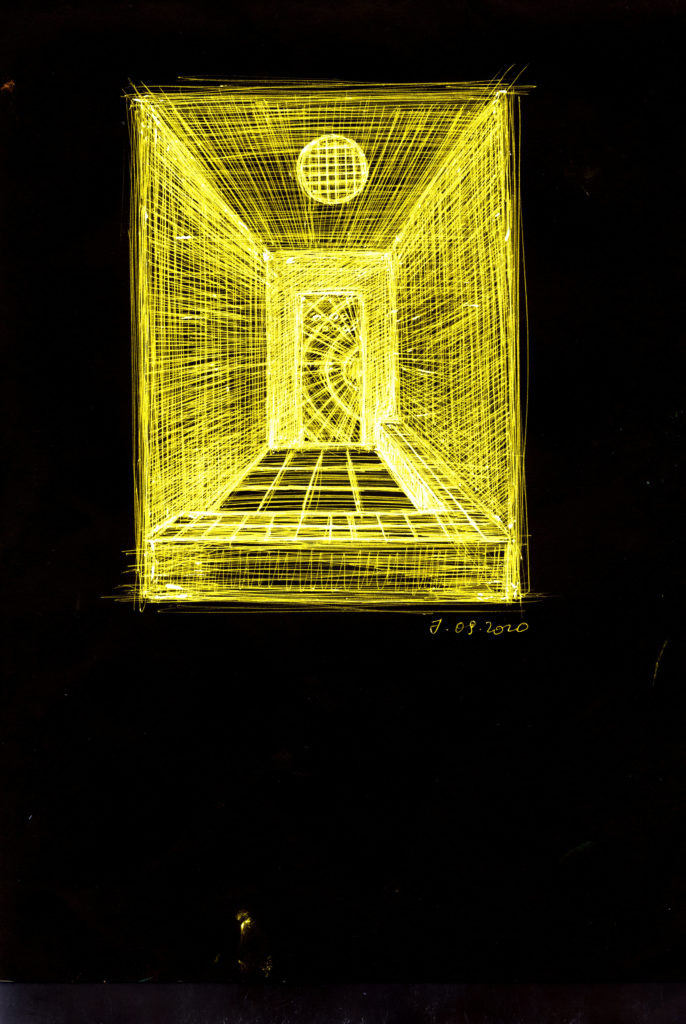
***
“We didn’t know each other until this summer” is a line from the popular song that this year has become one of the most frequently quoted among Belarusians in various locations and situations: courtyards, protests, marches, and prison cells. Its popularity testifies not only to growing solidarity but also to the fact that if earlier most of the society did not defend their interests and exercise civil rights, 2020 has become a real point dividing the history and lives of many people into “before” and “after”.
My personal story is a simple and, alas, a widespread example of the regime repressions, described by the new expression “If you were not in prison, then you are not a Belarusian”. I was sentenced to 15 days for participation in an unauthorized event (Article 23.34). It was a protest of artists against violence which took place near the Palace of Art in Minsk on August 15. My imprisonment led to an acquaintance with women of different ages, characters, spheres of activity and interests, forms and manifestations of their civil position. We were transferred from cell to cell, from one detention center to another, from Minsk to Zhodino. But everywhere we didn’t just get to know each other but became true sisters – supportive, understanding, and caring.
While in prison, I realized that this experience was also a dividing line. Therefore, some time after each of us walked out free, I asked my new friends to reflect and share their feelings. Their “before and after” are both in many ways similar, and somewhat different, but they once again emphasize this growing “Belarusian entropy”.
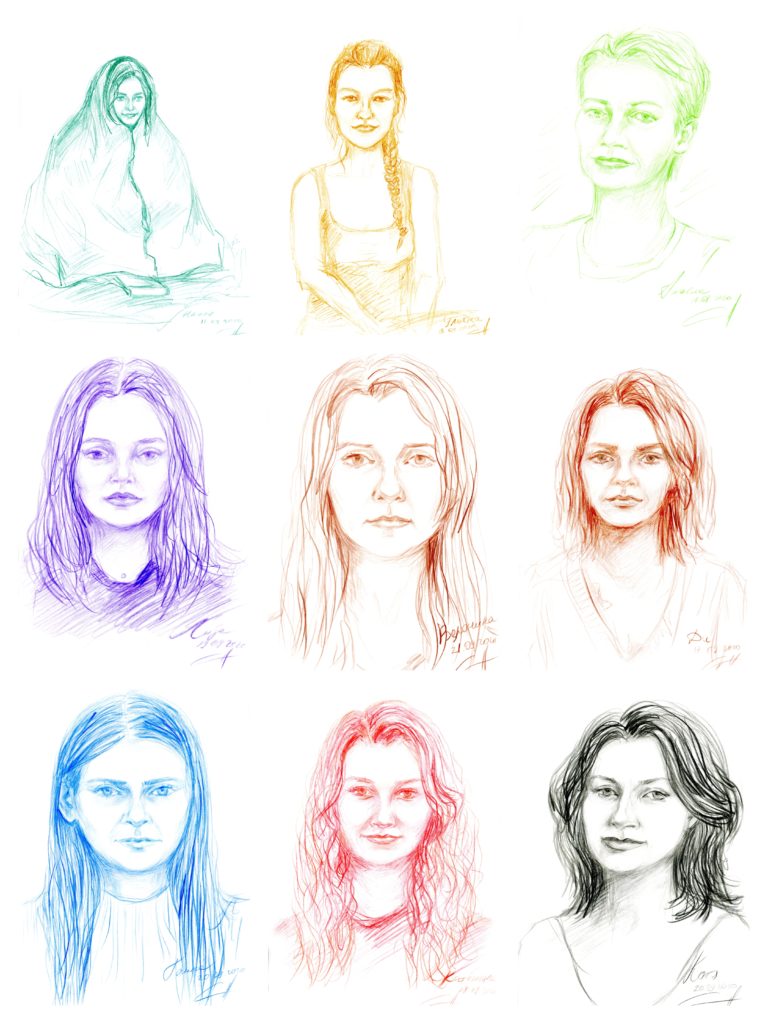
– For 26 years I was in a lethargic dream, realizing the futility of all attempts to make any body movements against the established regime. But during the coronavirus epidemic, I realized that the people in power absolutely do not care about my health. Or the health of my family. Or the health of my friends.
This was followed by an election campaign that literally pushed me off the couch. I was outraged by the cynicism and rudeness of the people who seized power.
I went out into the street, realizing the danger to my life and freedom. But I couldn’t stand it anymore.
Naturally, the dogs of the regime did not forgive me for my dissent. I was caught, convicted (according to their own idea of justice), and put in prison.
In prison, I made an agreement with my body and consciousness, convincing myself that things are going as they ought to. That I should not pay attention to humiliation and deprivation. I expected that I would undergo these tests and was ready for them. I even enjoyed communicating with the girls who shared the cell with me.
But when I walked out into the fresh air (I can’t say I was freed because there is no freedom in my beautiful country), I realized all the horror that happened to me. I got scared. Scared for myself. Scared for my loved ones. I’m scared for the people who emerged out of prison with me. We are defenseless against malice, against impudence, against lies and hypocrisy of the authorities…
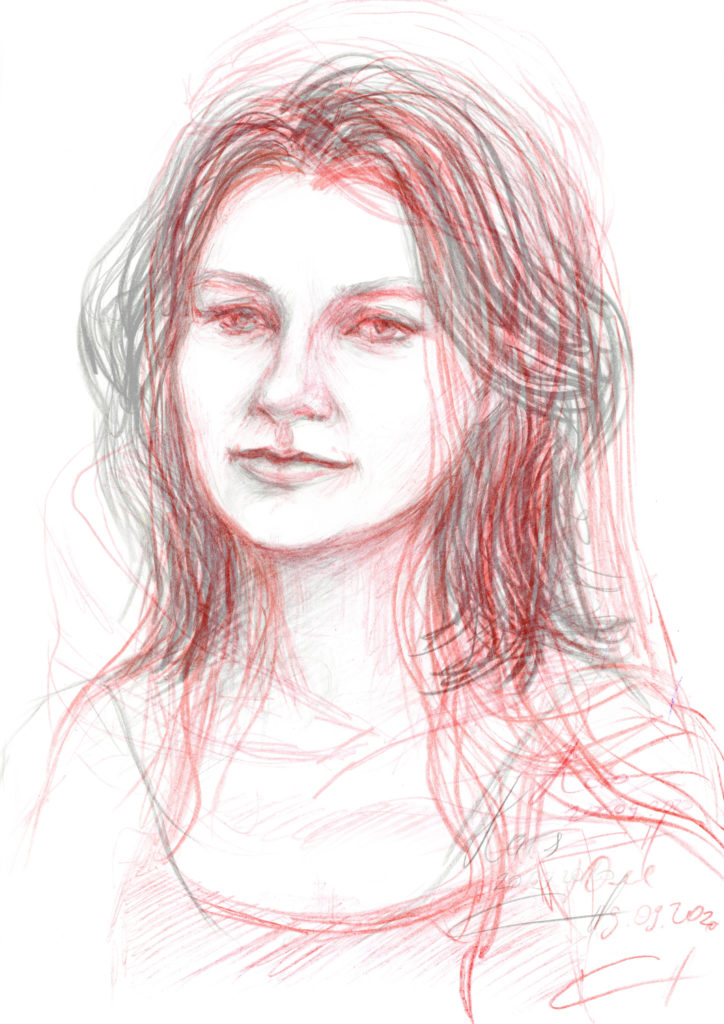
***
– As for the future of Belarus, my expectations are only positive, but the only question is when this future will come. At the very beginning of the protests I believed in victory within several weeks. Now it is clear that the process has been delayed, but it is still going in the right direction and will certainly be successful. Belarusians have become different people, they learned how close to each other they can be.
There is only one thing that changed after I served time. I went out and thought: “Here it is exactly the same prison.” And this feeling persists. But at the same time, I know for sure that we will win and that people who do not allow us to live freely and happily in our native country, will be punished. My dream is to turn jokes about “a country to live”4 into reality. I dream of freedom, independence, cultural and economic growth of Belarus, democracy, and good education. We have everything to materialize this. And among this “everything” in the first place is love. Love to each other and to Belarus, which, in general, has now become the same!
***
– I cannot say that I lived badly even six months ago. I had a good job, earned good money. But this money was paid to me by “Uncle John” from America. And the president of our country insisted on TV that we are eggheads.
At some point, one realizes that money is not the most crucial thing in life. And we got into this situation not for the sake of or because of the money.
We went to the streets to defend our rights, our voice, the people who live around us, our principles, our friends and family. We do not want to be repeatedly insulted by the “head” of the state. We do not want to be compared to livestock. We do not want to be beaten, humiliated, fired, and killed for dissent. I expect the voices of the people to be heard so that the people can choose their own representative. And that this representative would regard the people who hired them.
When I got to the detention center and served my sentence there, I observed something that struck me even more: I have not seen a single lowbrow girl. Everyone was well-mannered, we sorted the garbage in the cell, we sang songs, we talked a lot. There were only those girls who were diligent, intelligent, kind, and honest. It seems to me that such a society deserves respect for itself. Our people have shown that we know how to unite and help each other. I believe that Belarus has colossal prospects with such people.
And if before the arrest and incarceration I was terrified, eventually more faith grew inside me. There, being in a cell, absolutely defenseless, we were much stronger than those who imprisoned and guarded us. Freedom, faith, and love lived within us. And I believe that with such people Belarus will become, if not financially wealthy, then at least rich in spirit, and in this case, our nation will become much happier.
And one can speculate about the future for a long time, but the most important thing that I have gained for myself is pride. The pride that I am Belarusian, pride for my country. I had never been proud of this before – rather, with a little frustration, I had to explain abroad what kind of country it is. And now I am sure that in the future, every Belarusian will be proud of his or her country and of the fact that he or she is a citizen of Belarus, and the whole world will see that this is a country with incredible and bright people.
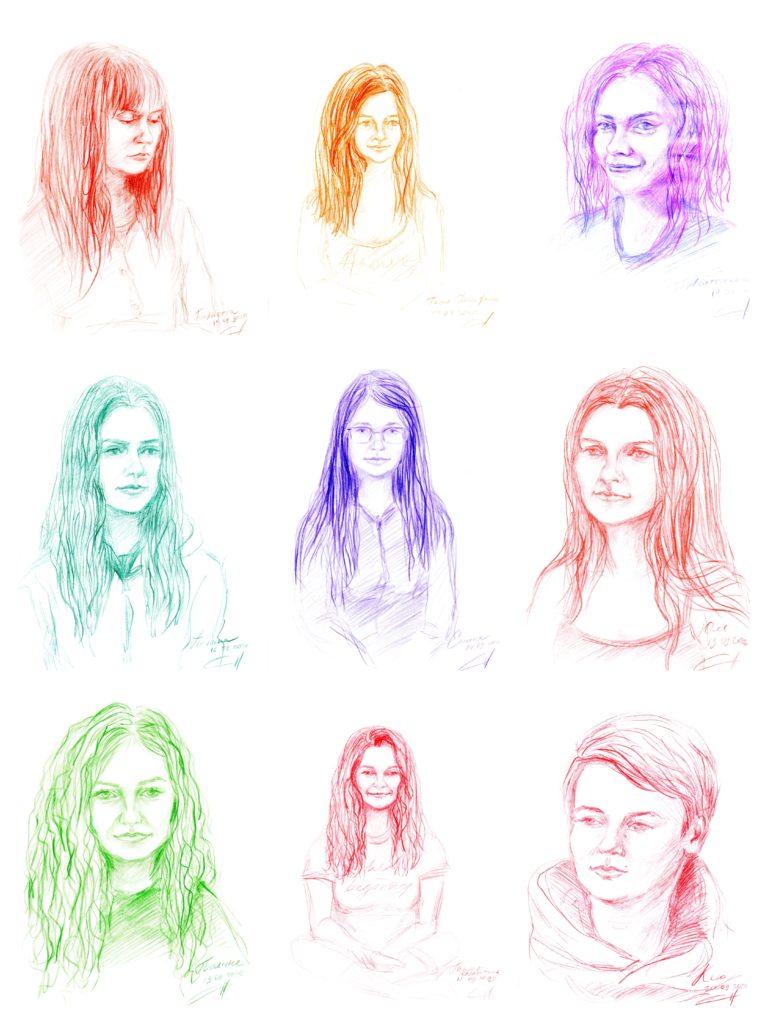
***
– Belarus will be fine. I didn’t think about it before, I thought that everything would just remain the same. Now I see what kind of people live here, what their views, goals and desires are. This is inspiring. I knew about such people who have always been like that – my friends, the people with whom I made projects. But it seemed to me that there are fewer of them; that this community is a kind of a “local get-together”. And the real Belarusians can be identified in the scandalous clinic queues, by derogatory attitude at schools, by disgruntled tired eyes (I would also like to add by “hatred of all living things”, but this is too much of an exaggeration, probably). As if they are present, they are noticeable, while you are somewhere alienated, in your own world.
Then it turned out to be a cleverly created illusion. They are simply and truly more visible. They had more power, there are more of them in the media and state institutions.
I realized this more acutely after the prison. While we were there, we discussed that such a system and such conditions should not exist for anyone. Not for us, not for real criminals. The prison should be a place of rehabilitation, not aggravation.
After getting out of prison, I visited a medical center for health inspection. They provide assistance to victims of repressions free of charge . The building is well maintained, has good equipment and caring staff. Everything was fine, everything was as it should be. And suddenly I remembered the clinic, which I had attended in my childhood. Its shabby walls, dirty toilets, rudeness and queues. We grew up in the midst of this. In grey schools with teachers who hate you and their work. In grey universities, where both students and teachers come just to tick the box. In grey hospitals, maternity hospitals, executive committees and somewhere else. We were surrounded by the same state structures with ugly posters, stupid phrases, bad taste and stereotypes. It has become a background that one doesn’t even notice, but which is somehow influential. And you feel like an outcast within this. It doesn’t matter where you work and what you do – a worker, a pupil, a student, a doctor, a marketer, a teacher, an entrepreneur – you are a bit of a stranger here if you have brains and a sense of taste. You realised this in the subcortex. And now, suddenly it came out.
It turns out that we are the norm. Not cliches created by the government, but us. We are the majority, we are Belarusians, we are the people. We have soul, intellect, ambition and desires. We are responsible for our life and our future. We are ready for changes, ready to manage them and invest in improvements. We want to fulfil ourselves and realize our plans. We want to live, we want freedom. And now we want to trust. Because it turned out that there is someone to trust.
***
Why do I personally compare the current situation in Belarus with entropy? Because I see a growing chaos and randomness in the actions of both parties: the regime and its opponents. Just as the suppression and punishment by the state exhausts the legality, the logic and the strategy – so the protest becomes more and more unexpected, uncontrollable and multi-format. The more severe and terrible the punishment gets, the stronger intimidation becomes – the bolder, more active, diverse and larger the reaction grows. The stronger repressions against culture and art workers are manifested – the more creative the response is. The more people are forced to leave the country – the faster the number of active citizens increases. At the same time, despite our strong faith, determination, struggle, consolidation, and solidarity, I see that the regime and its power mechanisms are not weakening, but are even more blatantly demonstrating the liberty of their banditry and cruelty. While active and highly educated people are forced to emigrate or undergo rehabilitation, protesters, who are still active, are tired of the situation and are mentally and physically unstable. They lose work and places of study, and institutions are forced to close or completely reorganize its functions and staff. All this suggests that the order of this “closed” Belarusian system continues to decrease rapidly, and the entropy, as is typical of the Universe, is increasing. And all this is as irreversible as it is hard to put the toothpaste back into a tube. That means that the only thing that can be assumed is that chaos will grow and strive to its destructive limit. Nobody knows when and how it will happen. But this is what ensures our evolution.
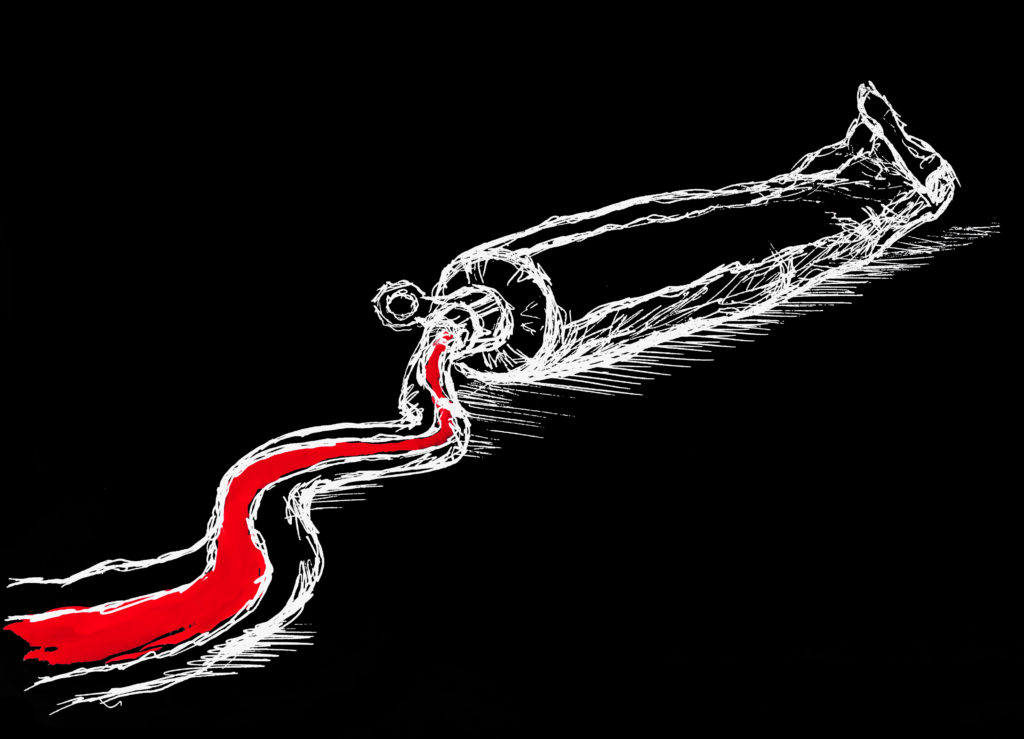
Claude Shannon – the creator of the information theory, who was working with the concept of the information entropy – explained the history of the term as follows: “My greatest concern was what to call it. I thought of calling it ‘information’, but the word was overly used, so I decided to call it ‘uncertainty’. When I discussed it with John von Neumann, he had a better idea. Von Neumann told me, ‘You should call it entropy, for two reasons: In the first place your uncertainty function has been used in statistical mechanics under that name, so it already has a name. In the second place, and more important, nobody knows what entropy really is, so in a debate you will always have the advantage.”5
That is why I would like to call what is happening in the country today “the Belarusian entropy”: despite a certain logic of the process, the experience of other countries, professional and amateur forecasting, internal and external predictions, the outcome remains unknown – as well as the future of the Universe, tending towards chaos. The main thing, noted by the absolute majority, is that the process has started, and artificially maintained balance and order are broken: we really woke up, came to life, and now grow together with this entropy.
October 30, 2020
***
In July 2020, Nadya Sayapina created a performance Heritage, dedicated to paintings confiscated from the corporate art collection of Belgazprombank in relation to the criminal case against Viktor Babariko – the chairman of the bank’s board and a presidential candidate. During the performance, 24 cultural workers and artists attached the reproductions of confiscated paintings to their backs and for several hours had been standing in front of the framed QR codes hanging on the walls.
Nadya Sayapina was detained at home on September 7, 2020. Law enforcement officers, using her keys without consent, illegally searched her apartment, seizing a router and several hard drives. Nadya’s trial was carried out with multiple gross violations, and the evidence of her guilt was based on the false testimony given by a witness who kept providing contradictory information. Sayapina was sentenced to 15 days of administrative arrest under Part 1 of Article 23.34 of the Code of Administrative Offenses – participation in unauthorized public gatherings – for taking part in a performance held on August 15 in front of the Palace of the Arts. The performance featured artists standing with the portraits of people who were injured during the protests which took place on August 9-11, 2020 and were brutally suppressed by the authorities.
-
“Entropy.” Merriam-Webster.com Dictionary, Merriam-Webster, https://www.merriam-webster.com/dictionary/entropy. Accessed 10 Nov. 2020.↩
-
Belorussia is a Soviet name of Belarus which is still used by russian-speaking population mostly outside of the country [ed.]↩
-
These are the remarks made publicly by Belarusian political leaders mixed with the examples of conventional thinking intrinsic to Lukashenko supporters [ed.]
-
“A country to live” is a Youtube channel of Sergei Tikhanovsky – a husband of Svetlana Tikhanovskaya, whose detention led her to run for the presidency. The channel is focused on giving publicity to the social and political hardships of Belarusian everydayness outside of the big cities. Its title is taken from the promotional video commissioned by the Ministry of Information, crafted to idealize Belarus and promote its positive image. [ed.].
-
Tribus, Myron, and Edward C. McIrvine. “ENERGY AND INFORMATION.” Scientific American, vol. 225, no. 3, 1971, p. 180↩